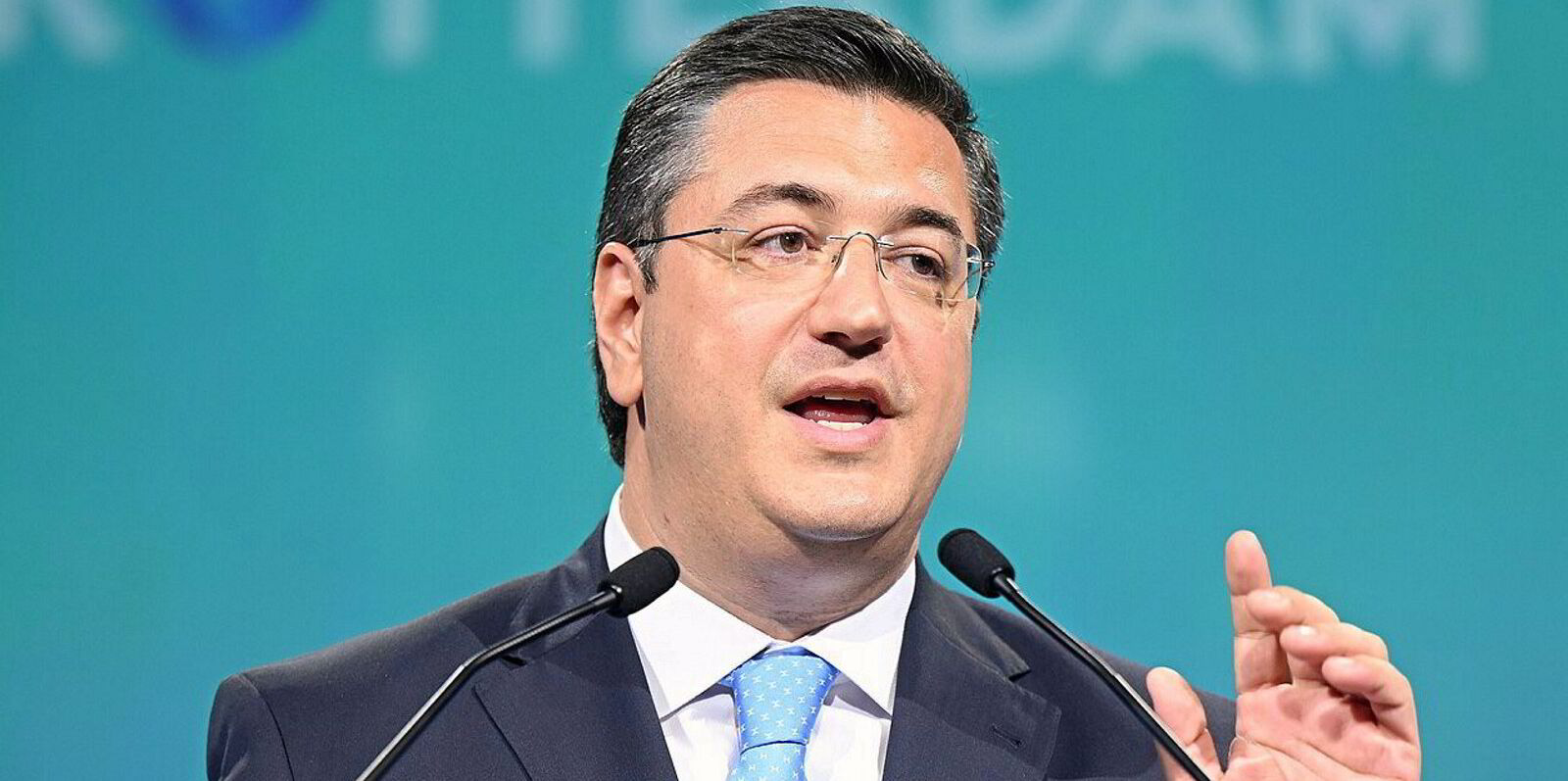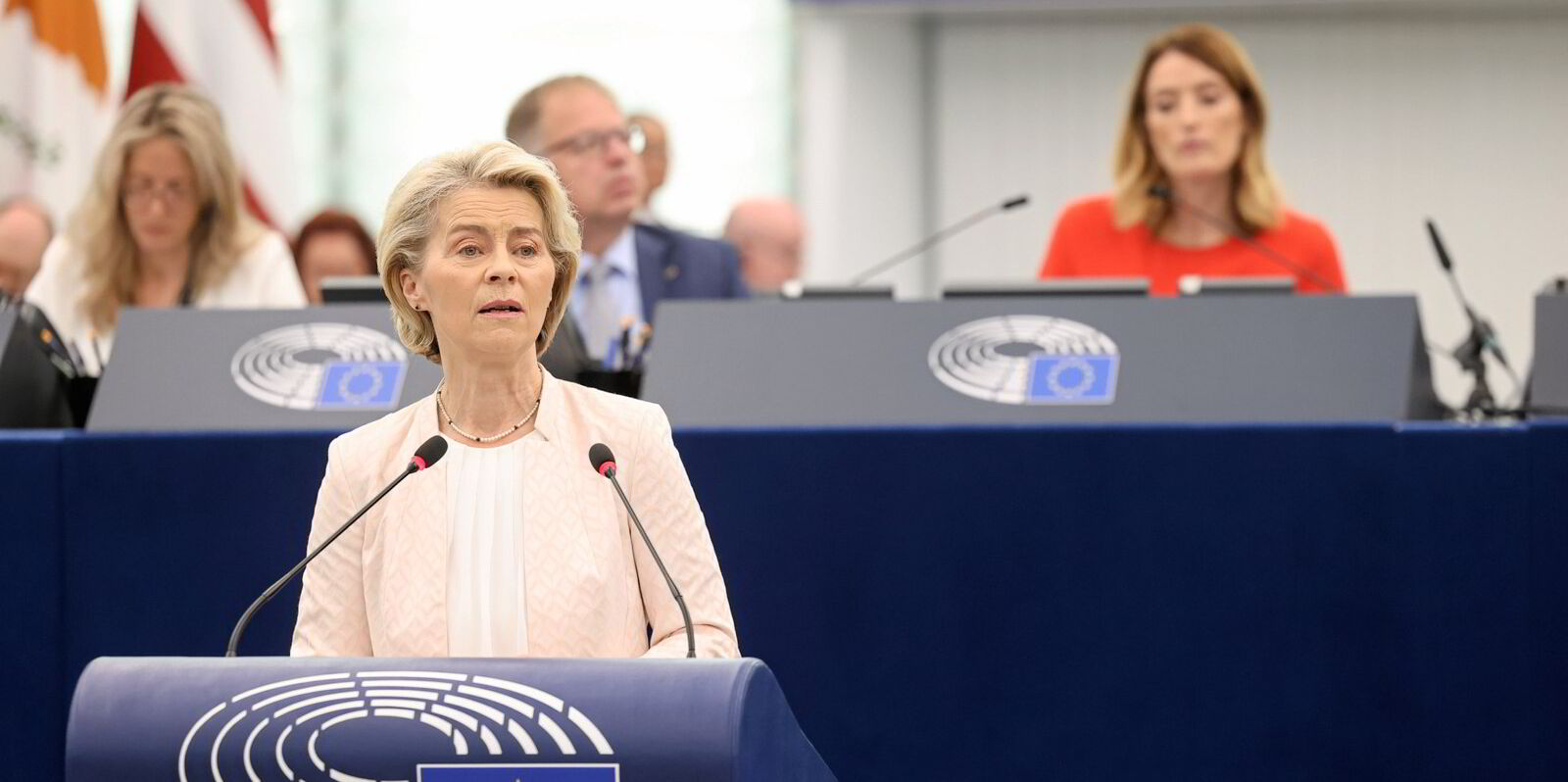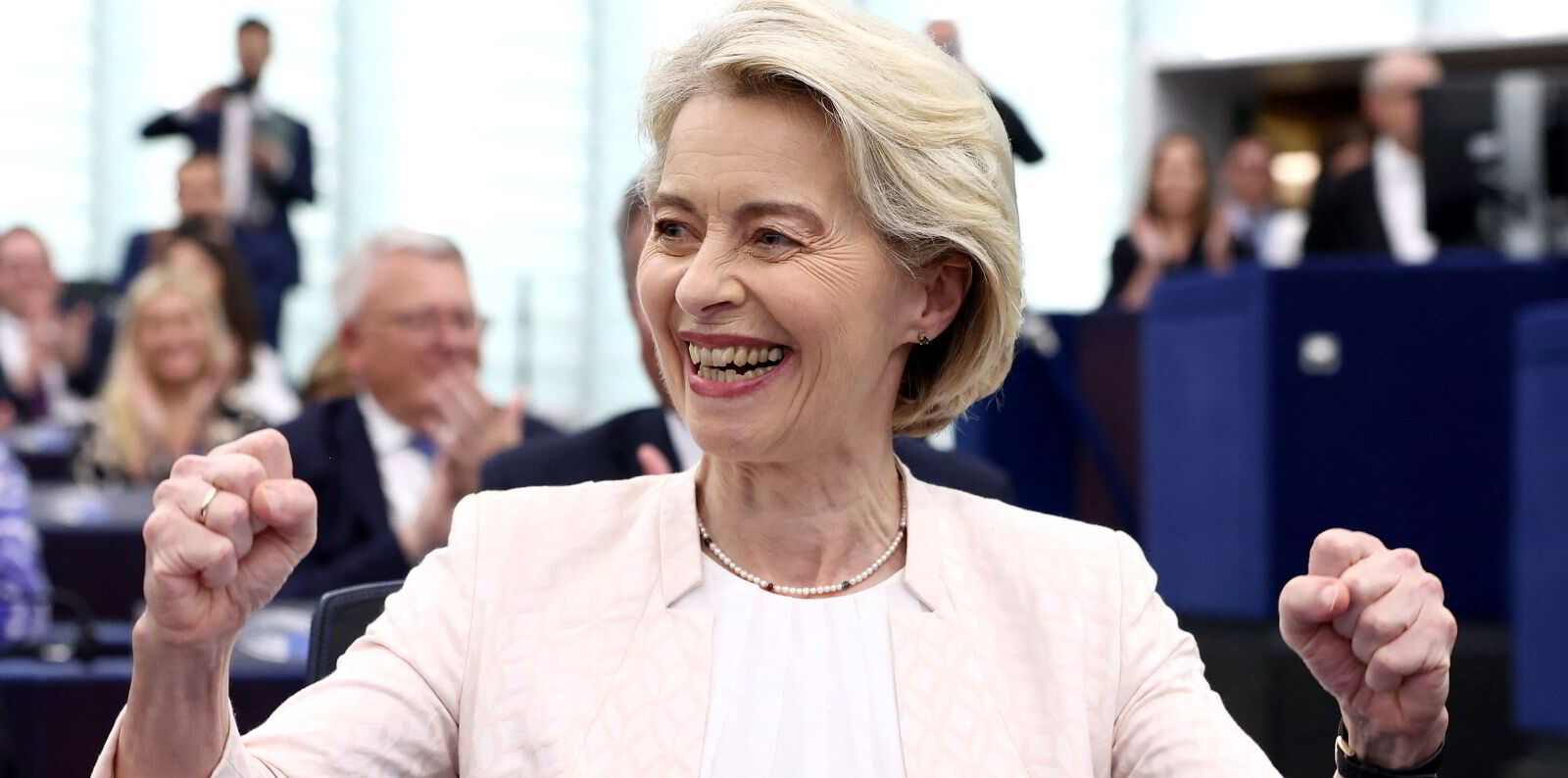Apostolos Tzitzikostas, a conservative politician from Greece, has been named the European Union’s new transport commissioner — the top EU post overseeing shipping.
Assuming the 46-year-old passes a European Parliament hearing later this year, he will become the first Greek to occupy the position since 1985.
And Europe’s biggest shipping nation will get a front-row seat in the regulatory tug-of-war shaping shipping’s future.
The transport commissioner traditionally represents the European Commission — the body proposing and executing EU legislation — in talks with the International Maritime Organization.
That puts Tzitzikostas in a key position as the EU pressures the IMO to adopt an effective carbon tax, under the threat of Brussels moving unilaterally if it is unhappy with the United Nations’ shipping body’s final emissions policy.
Hellenic capture of influential posts extends to the European Parliament where another conservative Greek lawmaker, Elissavet Vozemberg-Vrionidi, has been chairing the transport and tourism committee since July.
With EU policymakers notorious for tending to their own countries’ interests alongside the common European good, it would not be surprising to see the pair promoted into Greek positions.
“Having a transport commissioner from one of the traditional shipping nations can only be positive,” one Greek shipping insider said.
Athens publicly supports EU decarbonisation targets to reach climate neutrality by 2050.
However, Greek officials never fail to add that EU shipping companies’ competitiveness should not suffer — which some critics see as code for slowing decarbonisation down.
The new Greek policymakers will have to show their colours soon.
Faig Abbasov, shipping programme director of Brussels-based NGO Transport & Environment, said: “IMO talks and the upcoming revision of the FuelEU directive — that’s where the ambition of the EU transport commissioner and the people surrounding him will count.”
The first signs are encouraging.
Shipowner circles see it as a good omen that EC chief Ursula von der Leyen tasked Tzitzikostas with developing a “new industrial maritime strategy to enhance the competitiveness, sustainability and resilience of Europe’s maritime manufacturing sector”.
One concern was that the assignment would be given to incoming industrial strategy commissioner Stephane Sejourne — a Frenchman more likely to pursue dirigiste and protectionist policies.
In the same vein, observers see it as a plus that Tzitzikostas will report not to Sejourne but to Raffaele Fitto — an Italian in charge of cohesion and reforms.
New kid on the block
Greece’s incoming commissioner has some knowledge of how Brussels works.
Between 2020 and 2022, Tzitzikostas was president of the European Committee of the Regions — an EU consultative body that he is vice president of.
On the other hand, he has had very little to do, if anything at all, with shipping.
A son of a cabinet minister, Tzitzikostas built his political career by cultivating a firm but narrow base in Greece’s north — a region better known for agriculture rather than shipping — where he has been governor for the past 11 years.
His business experience comes from a dairy company he set up after studying politics, diplomacy, public policy and economics at Georgetown University in Washington and the University College of London.
That background has led to doubts that he will put his back into maritime matters.
“There’s talk he isn’t really interested in shaping EU policy,” one industry watcher told TradeWinds.
Shipping will likely struggle to win the Greek commissioner’s undivided attention.
Apart from tourism — another key industry — Tzitzikostas’ sprawling portfolio includes a variety of other politically sensitive transport modes.
Some observers even believe the Greek government sent him to Brussels to look after trains rather than ships.
A fatal rail accident in northern Greece that cost the lives of nearly 60 people last year remains controversial, to the point that some critics suspect the real reason Tzitzikostas has been appointed is to help the Greek government cover up the tragedy.
Even if he devotes all his energies to defending Greek shipping interests, Tzitzikostas will not be the only player that matters — especially in a commission where overlapping portfolios are the rule rather than the exception.
Another EU commissioner the shipping community will be closely watching is Wopke Hoekstra, the former Dutch foreign minister appointed to lead efforts on “climate, net zero and clean growth”.
Then, there is Von der Leyen, who leads the commission with an iron fist and measures her success against the EU’s Green Deal objectives.
Even at IMO talks, Tzitzikostas’ role will be more about coordinating EU member states’ positions rather than imposing his own agenda.
Last but not least, the permanent EU bureaucracy will not just support but also circumscribe the new commissioner’s work.
Chief among them is Magda Kopczynska — the well-regarded EU official from Poland heading the directorate-general for mobility and transport.







